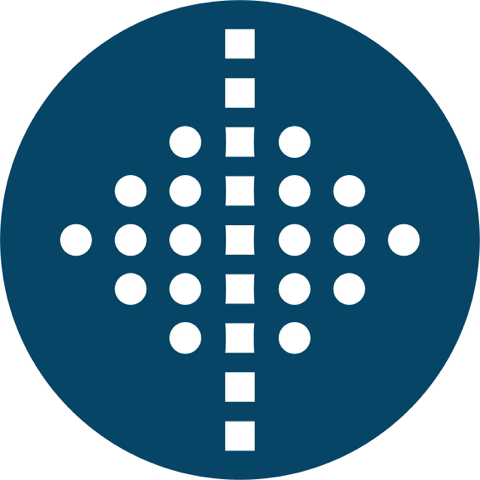Prenumeration
Beskrivning
| Land | Norge |
|---|---|
| Lista | Oslo Bors |
| Sektor | Hälsovård |
| Industri | Medicinteknik |
Bergen, Norway, 20 March 2025 – Lifecare ASA (LIFE) is a medical sensor company advancing product development for the next-generation Continuous Glucose Monitoring (CGM). This week, Lifecare successfully hosted a high-profile symposium, contributed to a global consensus recommendation alongside Novo Nordisk, and is set to present data at the Advanced Technologies & Treatment for Diabetes (ATTD) conference in Amsterdam.
Lifecare CGM symposium at Eitri, Haukeland University Hospital
17 March 2025 Lifecare brought together world-renowned experts for the Lifecare CGM-Symposium 2025 at Eitri, Haukeland University Hospital in Bergen, Norway. Professor David Klonoff (Diabetes Research Institute, Mills-Peninsula Medical Center, San Mateo and UCSF, CA, USA), Niels Ejskjær (Aalborg University Hospital), Simon Dankel (University of Bergen), and Andreas Pfützner (Lifecare and DTMD University, Luxembourg) shared insights on the evolution of Continuous Glucose Monitoring, discussing past, present, and future perspectives. The symposium explored state-of-the-art CGM technologies, including Lifecare’s proprietary osmotic-pressure-based sensor, a novel approach aiming to revolutionize glucose monitoring with increased accuracy and longevity.
Among the key topics covered at the symposium were:
- Next-generation CGM devices – including nano-printed, osmotic-pressure-based sensors from Lifecare.
- Glucose-dependent insulin – an emerging technology with the potential to deliver insulin that only activates at high glucose levels.
- AI-powered Glycemic Risk Index (GRI) – a software tool that synthesizes large amounts of CGM data to aid physicians in making faster, data-driven decisions.
- In-hospital diabetes management – addressing the inadequacies in current clinical protocols.
“Technology is key to transforming diabetes care”, says Joacim Holter, CEO of Lifecare. “This symposium was an excellent platform to discuss the latest advancements and Lifecare’s role in the future of CGM innovation.”
In addition to the scientific program, Marta Helgidottir, a representative from the Norwegian Diabetes Association, shared her personal story of being a mother to a four -year-old girl with Type 1 diabetes.
- The patient perspective is fundamentally important for the work at Lifecare and such testimonies are highly valued. The Lifecare team looks forward to the next CGM symposium, says CEO Joacim Holter.
Lifecare supports the Diabetes Technology Society global consensus on GLP-1 and Type 1 Diabetes.
Lifecare has contributed as a sponsor, alongside Novo Nordisk, for a Consensus Recommendations on the use of GLP-1 Receptor Agonists in Type 1 Diabetes, hosted by the Diabetes Technology Society and chaired by Professor David Klonoff (Diabetes Research Institute, Mills-Peninsula Medical Center, San Mateo and UCSF, CA, USA) and Professor Viral N. Shah (Indiana University School of Medicine, IN, USA).
This significant global initiative, spearheaded by 19 leading global diabetes technology experts, aims to establish clinical guidelines for integrating GLP-1 receptor agonists into type 1 diabetes management, offering new therapeutic avenues for improved glycemic control and patient outcomes.
- We are happy to sponsor this publication from The Diabetes Technology Society. These recommendations aim to guide clinicians and researchers in optimizing the use of GLP-1RAs alongside AID systems to improve outcomes for individuals with T1D, says CEO Joacim Holter.
For further details, visit: Diabetes Technology Society (https://www.diabetestechnology.org/glp1t1d/).
Lifecare presents data at ATTD 2025
This week, Lifecare will showcase scientific findings at ATTD in Amsterdam, highlighting the latest results from its Sencell CGM development program. The Poster presentation will focus on human and veterinary studies evaluating Lifecare’s proprietary osmotic-pressure-based glucose sensor, which aims to set a new benchmark for accuracy and longevity in CGM technology.
Study results indicate that Lifecare’s Sencell sensor demonstrates a Mean Absolute Relative Difference (MARD) of 9.6%, placing it in line with leading commercial CGM devices. The sensor, which is designed to function for a minimum of 6 months has successfully tracked glucose concentrations comparable to existing needle-based CGMs, paving the way for further development in wireless data and energy transfer.
“Our ongoing product development continues to validate the Sencell sensor’s unique capabilities,” said Joacim Holter. “We are committed to delivering a next-generation CGM solution that enhances both patient experience and clinical outcomes.”

